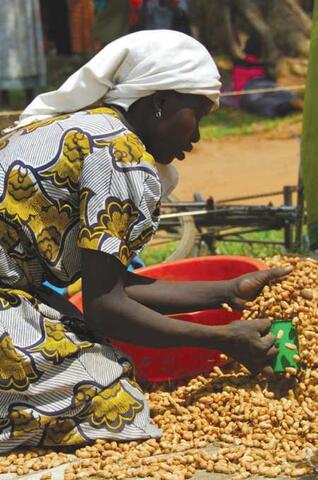Agroecology case studies
http://www.oaklandinstitute.org/agroecology-case-studies
While agroecology promotes low use of external inputs, it is a very knowledge-intensive system. Transmission of this knowledge, adaptation to local contexts, and appropriation by farmers and government technicians, are essential steps for farmers and communities to reap the benefits of agroecology. The case studies demonstrate how the expansion of agroecological practices will generate a rapid, fair and inclusive development, that can be sustained for future generations.

******
A large variety of techniques are used to increase yields in a sustainable way: plant diversification, intercropping, application of mulch, manure or compost for soil fertility, and natural management of pests and diseases. Often combined, these have been success stories all over the African continent. In Ethiopia, a low external input approach led to a doubling of Tigray's grain yield between 2003 and 2006, while fertilizer use decreased by 40%. In East Africa, over 96,000 farmers have adopted the Push-pull system that fights the parasitic Striga weed and stem borers invasion in maize fields, without any chemical insecticides and herbicides. Maize yields have increased three-fold as a result. Kenyan farmers who adopted theGrow Biointensive approach, using mainly compost, close spacing of plants, and intercropping, increased their yields by 2-4 times compared to conventional farming while using 70 to 90 % less water, and purchasing 50 to 100% fewer inputs.
While agroecology promotes low use of external inputs, it is a very knowledge-intensive system. Transmission of this knowledge, adaptation to local contexts, and appropriation by farmers and government technicians, are essential steps for farmers and communities to reap the benefits of agroecology. The case studies demonstrate how the expansion of agroecological practices will generate a rapid, fair and inclusive development, that can be sustained for future generations.

******
A large variety of techniques are used to increase yields in a sustainable way: plant diversification, intercropping, application of mulch, manure or compost for soil fertility, and natural management of pests and diseases. Often combined, these have been success stories all over the African continent. In Ethiopia, a low external input approach led to a doubling of Tigray's grain yield between 2003 and 2006, while fertilizer use decreased by 40%. In East Africa, over 96,000 farmers have adopted the Push-pull system that fights the parasitic Striga weed and stem borers invasion in maize fields, without any chemical insecticides and herbicides. Maize yields have increased three-fold as a result. Kenyan farmers who adopted theGrow Biointensive approach, using mainly compost, close spacing of plants, and intercropping, increased their yields by 2-4 times compared to conventional farming while using 70 to 90 % less water, and purchasing 50 to 100% fewer inputs.
Etiquetas: Africa, Agroecology, eng, Oakland Institute

0 Comentarios:
Publicar un comentario
Suscribirse a Comentarios de la entrada [Atom]
<< Página Principal